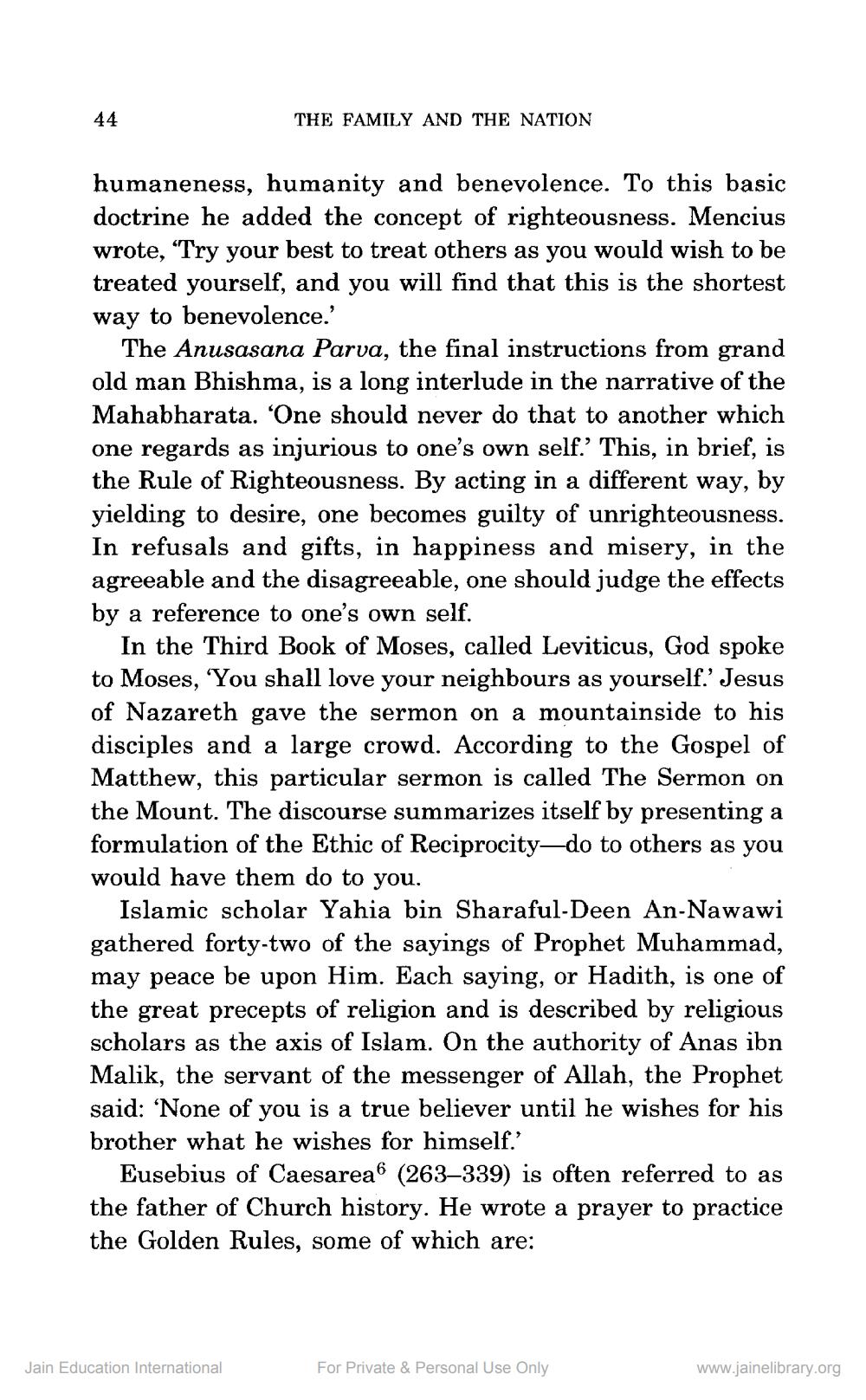________________
44
THE FAMILY AND THE NATION
humaneness, humanity and benevolence. To this basic doctrine he added the concept of righteousness. Mencius wrote, “Try your best to treat others as you would wish to be treated yourself, and you will find that this is the shortest way to benevolence.'
The Anusasana Parva, the final instructions from grand old man Bhishma, is a long interlude in the narrative of the Mahabharata. 'One should never do that to another which one regards as injurious to one's own self.' This, in brief, is the Rule of Righteousness. By acting in a different way, by yielding to desire, one becomes guilty of unrighteousness. In refusals and gifts, in happiness and misery, in the agreeable and the disagreeable, one should judge the effects by a reference to one's own self.
In the Third Book of Moses, called Leviticus, God spoke to Moses, 'You shall love your neighbours as yourself.' Jesus of Nazareth gave the sermon on a mountainside to his disciples and a large crowd. According to the Gospel of Matthew, this particular sermon is called The Sermon on the Mount. The discourse summarizes itself by presenting a formulation of the Ethic of Reciprocity-do to others as you would have them do to you.
Islamic scholar Yahia bin Sharaful-Deen An-Nawawi gathered forty-two of the sayings of Prophet Muhammad, may peace be upon Him. Each saying, or Hadith, is one of the great precepts of religion and is described by religious scholars as the axis of Islam. On the authority of Anas ibn Malik, the servant of the messenger of Allah, the Prophet said: 'None of you is a true believer until he wishes for his brother what he wishes for himself.'
Eusebius of Caesarea6 (263–339) is often referred to as the father of Church history. He wrote a prayer to practice the Golden Rules, some of which are:
Jain Education International
For Private & Personal Use Only
www.jainelibrary.org




